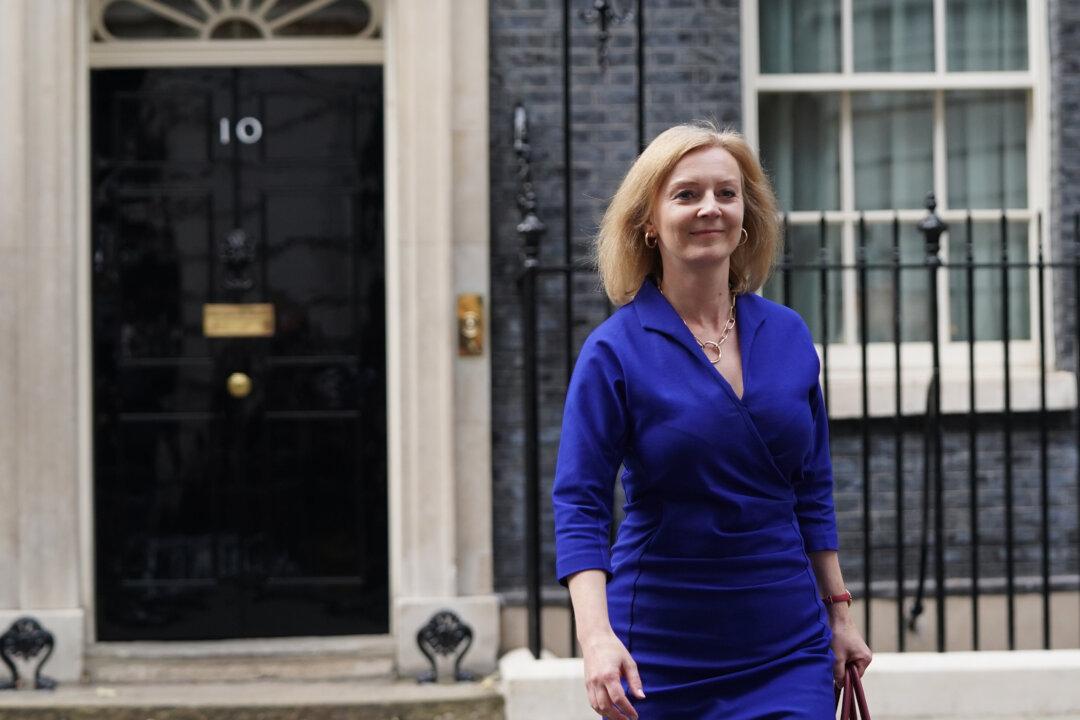Elizabeth Truss has replaced Dominic Raab and become the new British foreign secretary in a government reshuffle to form a “strong and united” Cabinet on Wednesday.
The former international trade secretary—commonly known as Liz Truss—has championed the cabinet popularity contest for months as the woman responsible for negotiating continuity and new trade deals around the world to keep post-Brexit Britain in business.





